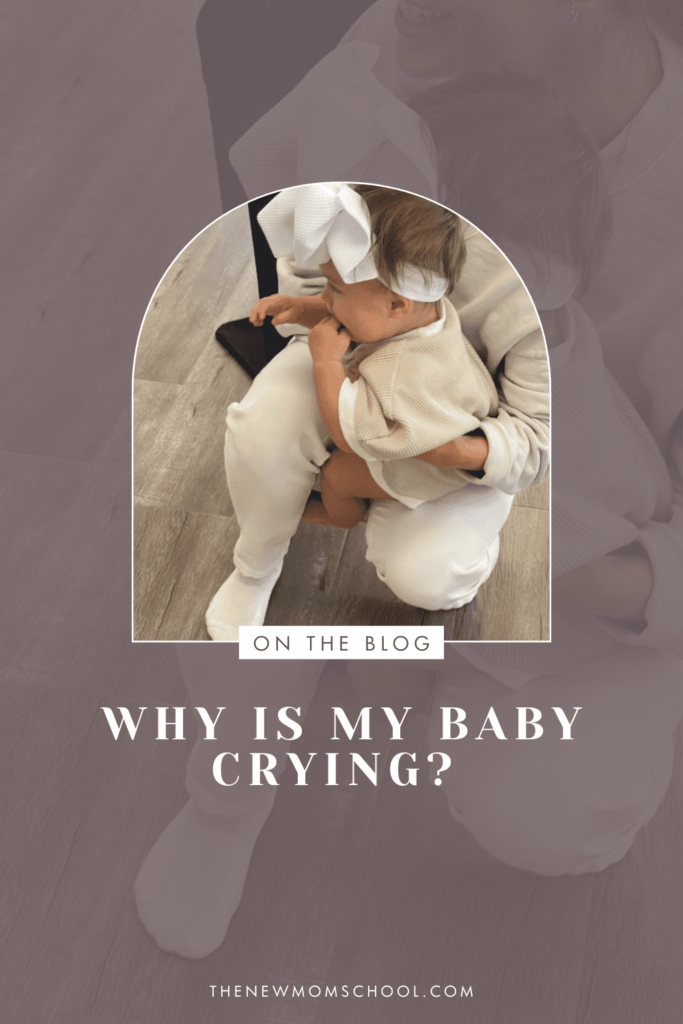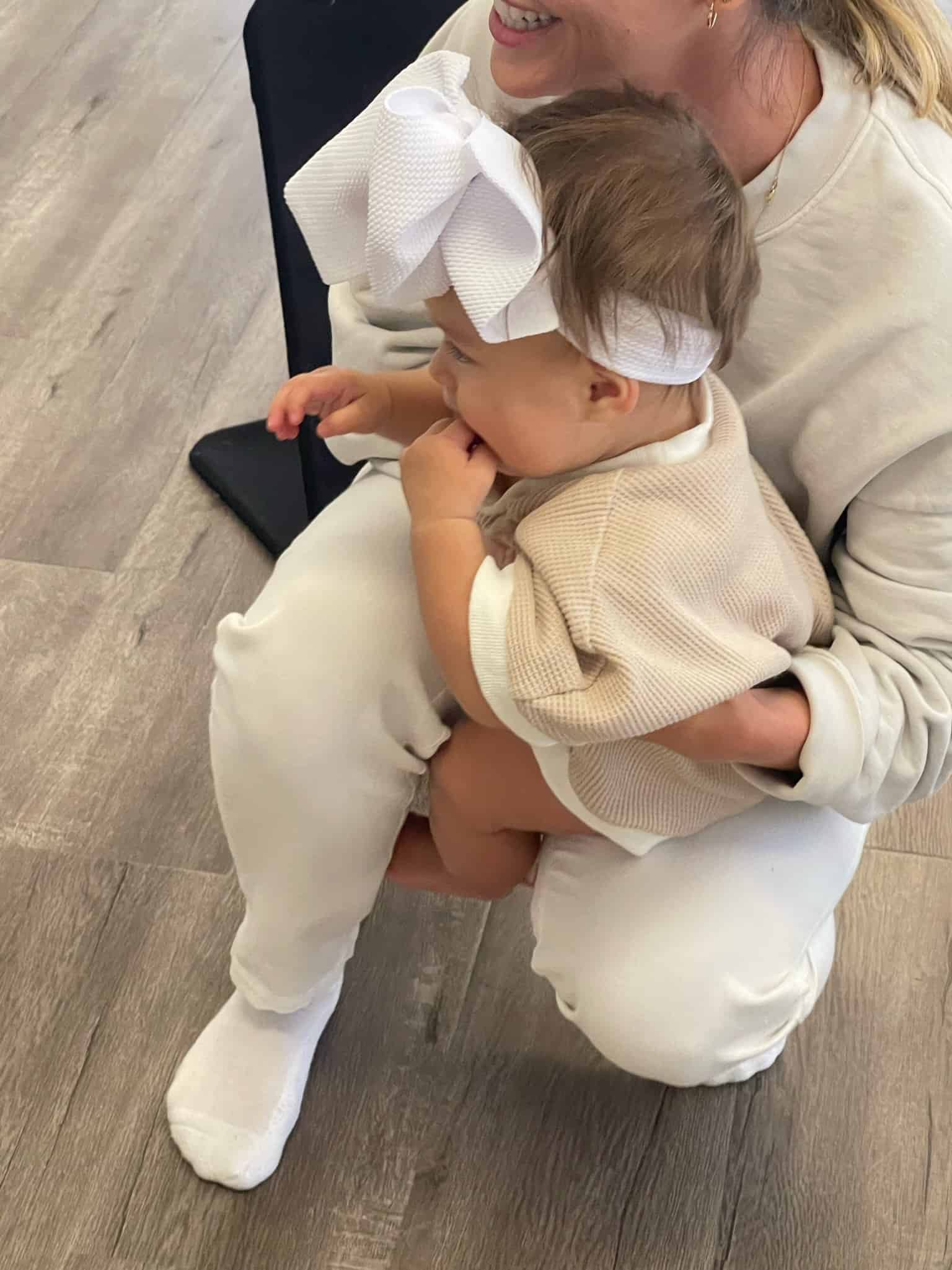Let’s face it, there can be a lot of crying with a newborn in the house. It’s very common for babies to cry, and there can be many reasons why your baby is crying. Wet diaper, too hot, too cold, hungry, gas, tummy upset… the list goes on and on! 
Possible reasons your newborn is crying
Hunger: Babies have small stomachs and need to eat frequently. Crying is often a signal that your baby is hungry. A feed might be all that they need. Dirty diaper: Babies don’t like the feeling of a wet or dirty diaper, and crying can be a way for them to let you know that they need a change, even if you swear you just changed them! Even a drop of pee is one of the MOST common reasons a baby is crying. Tiredness: Babies need about 11-13 hours of sleep per day (newborns even more!), and when they get overtired, they can become fussy and cry. Try for a nap, even if it’s a nap in the carrier because they don’t want to be put down. This is especially helpful in the late afternoon when a 5pm nap is SO needed but they won’t go to sleep unless you’re holding them or in the stroller on a walk outside. Overstimulation: Like most of us, newborns can become overwhelmed by too much noise, light, or activity, and crying can be a way for them to express their discomfort. Ease the sensory overload in a quiet, calm environment with white noise to help get them regulated. Illness or discomfort: If your baby is crying excessively, has a fever, or seems to be in pain, it’s possible that they are sick or have painful gas or reflux. If so, check out this blog: 20 Tips for Babies With Reflux. A temp of 100.4F in a baby 3 months of age or younger always requires immediate medical attention. For babies 4 months of age or older, consult your Doctor if you are concerned or feel you’ve exhausted all of your options and aren’t able to bring your baby any relief. Colic: Colic is a term used to describe excessive crying in infants that lasts for more than three hours a day, for more than three days a week, and for three weeks or more. The cause of colic is not known, but it usually starts around two weeks of age and goes away by three to four months of age. Speak to your doctor for more support on this one. Remember that crying is your baby’s way of communicating with you, so try to be patient and attentive. Here’s some more resources that can help: 10 Ways to Soothe A Fussy Baby How To Do Baby Massage Our final takeaway is to use Mama’s instinct. We just know when something isn’t right with our babies. Never be afraid to reach out to your doctor for support or to get a second opinion.
Want support that actually gets it?
Find your local New Mom School and connect with a community of moms, experts, and real talk that makes the fourth trimester feel a little less overwhelming.
Wishing there was a New Mom School closer to you?
You might be the one to bring it there. Learn how to open a location in your town.

